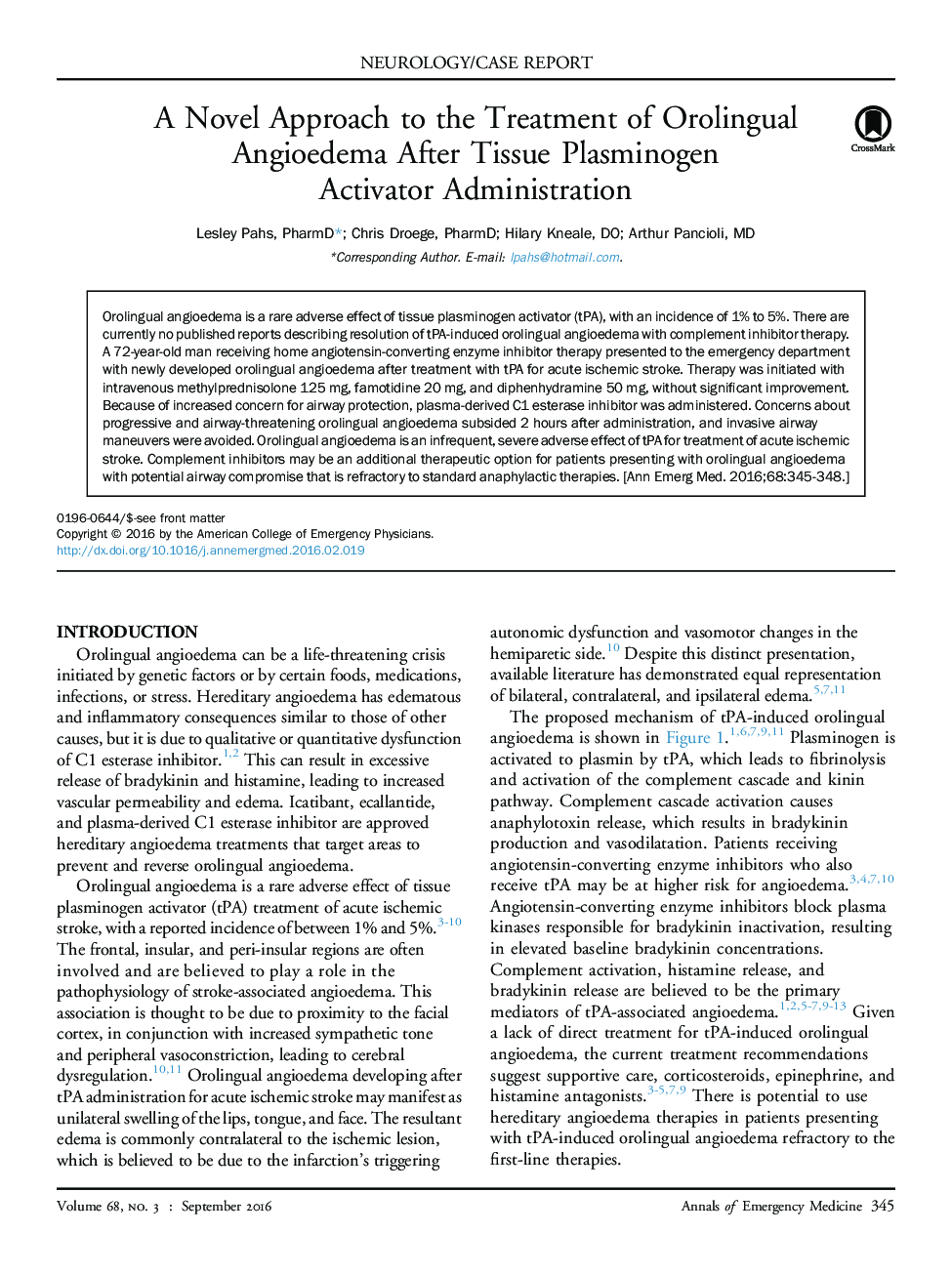| Article ID | Journal | Published Year | Pages | File Type |
|---|---|---|---|---|
| 3228193 | Annals of Emergency Medicine | 2016 | 4 Pages |
Orolingual angioedema is a rare adverse effect of tissue plasminogen activator (tPA), with an incidence of 1% to 5%. There are currently no published reports describing resolution of tPA-induced orolingual angioedema with complement inhibitor therapy. A 72-year-old man receiving home angiotensin-converting enzyme inhibitor therapy presented to the emergency department with newly developed orolingual angioedema after treatment with tPA for acute ischemic stroke. Therapy was initiated with intravenous methylprednisolone 125 mg, famotidine 20 mg, and diphenhydramine 50 mg, without significant improvement. Because of increased concern for airway protection, plasma-derived C1 esterase inhibitor was administered. Concerns about progressive and airway-threatening orolingual angioedema subsided 2 hours after administration, and invasive airway maneuvers were avoided. Orolingual angioedema is an infrequent, severe adverse effect of tPA for treatment of acute ischemic stroke. Complement inhibitors may be an additional therapeutic option for patients presenting with orolingual angioedema with potential airway compromise that is refractory to standard anaphylactic therapies.
